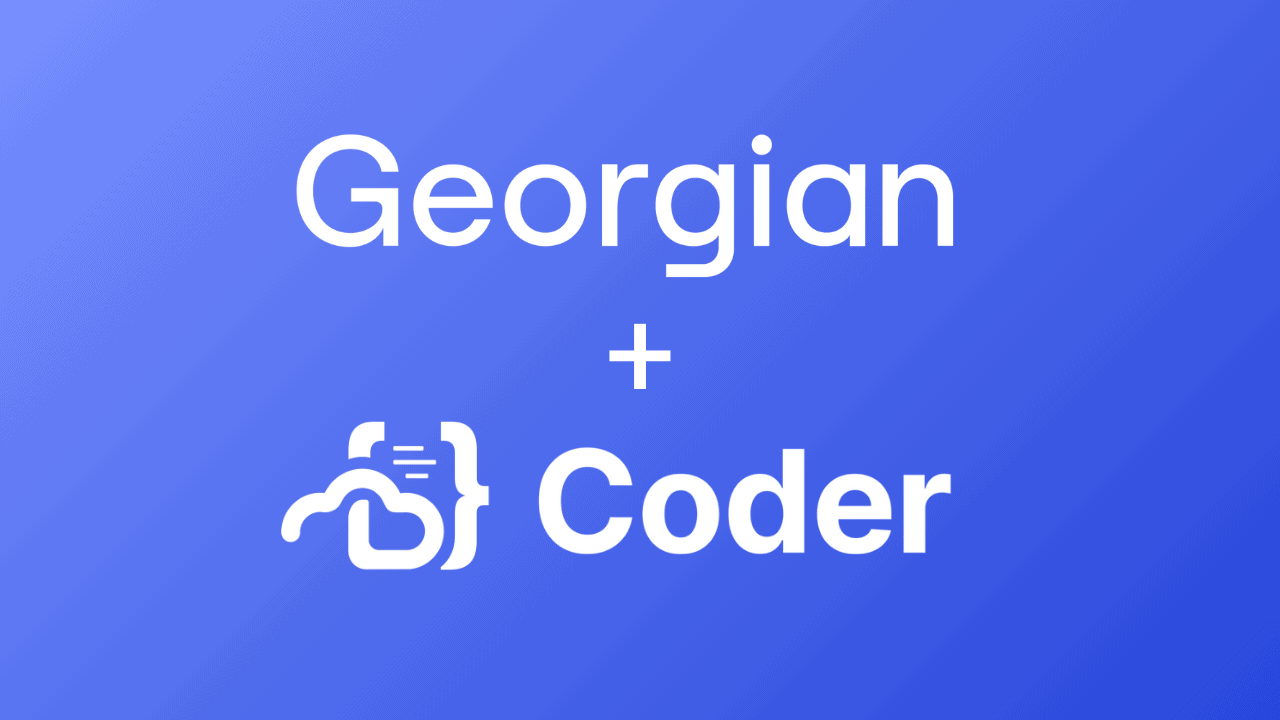
Why Georgian Invested in Coder
We are excited to announce that Georgian has led Coder’s $35M fundraise alongside existing investors Notable Capital, Redpoint Ventures, and Uncork Capital. With this round of funding, Coder intends to invest in furthering its leading cloud development environment (CDE), accelerating its go-to-market and customer success presence in North America and Europe, and growing its own open-source footprint and community.
Our Experience
Georgian invests in high-growth technology companies with the support of an in-house technical team of software and machine learning engineers. This team works with our investors to source investment opportunities and support our portfolio with value-add projects. As LLMs have gained widespread adoption in the last 18 months, we’ve witnessed a significant need for more compute on an increasing number of our projects. As a result, our team is frequently utilizing heavy VMs to work with large datasets and tune machine learning models to run advanced simulations.
This hardware tends to be expensive (especially GPUs), emphasizing the importance of maintaining strict governance over active VMs to avoid underutilized resources. Layered on top of persistent configuration and environment drift concerns, and a growing number of AI-enabled tools, the evolving compute paradigm has resulted in more complexity for platform teams throughout the software industry.
A Shifting Landscape
Modern software development – building, testing, shipping, and deploying – mostly happens in the cloud, and yet the crucial step of writing and executing code is performed on developers’ local machines.
As an alternative, CDEs remove the dependency on local machines for code execution. CDEs offer scalable compute power, an enhanced developer experience by providing ready-to-use access to fully-configured development workspaces, and centralized governance for platform teams.
While the concept of cloud-based development is not new – tracing its origins back to the early 1960s, with the advent of remote development – the first modern CDEs emerged in the 2010s[1]. Historically, there has been a gap in CDE tooling suitable for the enterprise. Many leading tech companies, such as Shopify, Uber, and Slack, have developed their own internal CDEs as a core part of their engineering stacks. We are witnessing enterprises increasingly seek out and adopt CDEs, driven, in our view, by several catalysts:
- Increased Developer Responsibility to “Shift Left”: Developers are increasingly taking on a broader range of tasks earlier in the software development lifecycle, including infrastructure provisioning and maintenance. This shift is impacting productivity, accentuating the benefits of pre-configured development environments built to reduce friction and allow developers to spend more time coding.
- Surging Demand for AI & ML: Rapid advancements in artificial intelligence and machine learning are driving a growing number of software engineers to develop AI applications. This demand requires access to more powerful and efficient computing infrastructure capable of handling large datasets and machine learning models.
- Heightened Developer-Focused Cyber Threats: As cyber attacks targeting developers become more sophisticated, there is a growing need for robust security measures and governance of the SDLC. Protecting code and developers’ environments is critical to safeguarding intellectual property and maintaining the integrity of the development process.
With Gartner predicting that 60% of cloud workloads will be built and deployed using CDEs by 2026[2], we believe that the need for enterprise-focused CDE vendors will continue to accelerate.
Enter Coder
Enter Coder, a self-hosted CDE that can run air-gapped on-premise or in the cloud, with leading configurability and an agnostic design that supports the needs of the modern enterprise. Coder’s CDEs are provisioned as code and provide access to the IDEs, infrastructure, and integrations pre-approved and configured by an administering platform team. Coder leverages Terraform to provide the fine-grained customizability that large enterprises require for resource management at scale.
From the developer’s perspective, Coder allows users to spin up ephemeral development environments in seconds, saving time traversing outdated README files and getting stuck in configuration snags to provision workstations. Compute-heavy workloads, such as ML training and inference, can be moved from local machines into the cloud with ease. With Coder, developers can avoid lengthy onboarding times and worrying about whether upgrading to the latest version of python will break a project.
Coder has scaled significantly in the last year, more than doubling the size of the team to support accelerating customer demand. The Company announced Coder 2.0 in September 2023 after a ground-up redesign of the product to enable more streamlined environment provisioning and to introduce template configuration through Terraform. Customers like Discord and Dropbox have written about their Coder implementations and the numerous benefits Coder has brought to their developer ecosystems. According to Coder’s customers, which include Fortune 500 companies and highly technical engineering teams, Coder’s configurability and self-hosted architecture make the product particularly compelling for enterprise deployments.
Co-Founders Kyle Carberry, Ammar Bandukwala, and CEO Rob Whiteley have built a unique culture around engineering excellence and a deep commitment to customer success. We are excited to be partnering with Coder in this next chapter. To learn more about the Company, please visit the Coder website.
[2] Gartner’s Hype Cycle™ for Emerging Technologies, 2023
Read more like this
Why Georgian is Investing in SurrealDB
The proliferation of unstructured data has, in our view, made building modern…
Introducing Georgian’s “Crawl, Walk, Run” Framework for Adopting Generative AI
Since its founding in 2008, Georgian has conducted diligence on hundreds of…
Practitioners Perspectives: GenAI Risks and Opportunities
Generative AI (GenAI) is creating new opportunities, and companies need to keep…